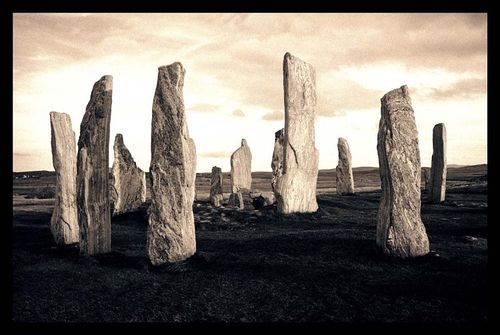 “I’m Sorry You Weren’t Saved in the Rapture.”
“I’m Sorry You Weren’t Saved in the Rapture.”
Thus reads the official blog for Judgment Day 2011. The automated blog post was intended to be an “I told you so” to survivors of Judgment Day and an attempt to have us left behind find our way to Jesus and save our souls before the second wave hits.
While Harold Camping, the retired civil engineer turned prophet, still has not officially emerged from seclusion there have been several pastors across the country asking for forgiveness from parishioners due to the misguided information.
Matt Ivers from Idaho offers this apology:
“I am very sorry for wrongly teaching that and it is my best and sincere interest to not mislead, frustrate, or lie to anyone. I hope that you can forgive me and that we can all grow spiritually from this lesson.”
I think it would be wonderful to all grow spiritually from this experience. For starters, I’d like us to become more conscious and responsible about the things we say.
One of the most fascinating things about this whole Rapture business is how many of us sat up and took notice. Like the prophets in the Old Testament, our contemporary prophets are not always dialed in to the exact truthiness of a thing. But, wow, do they have passion. When someone believes something with all of their being, it is hard not to stop and marvel at it, wonder how it came to be that they feel so strong about it and decide for myself if I, too, am of the same mind.
However, many of us push our way into the “fields” of other people and attempt to manipulate their organic decision making processes.
George W. Bush looked very sincere, even earnest, about Iraq’s Weapons of Mass Destruction (WMD’s) but he wasn’t passionate. It was Colin Powell, who I actually trusted, that was most convincing because of his character. “Well, maybe they do have them,” said the part of me that wants to trust others…
Renowned scientist, Stephen Hawking, came out publicly last week and suggested that the only reason he is still alive today is due to science. It makes me wonder.
“I regard the brain as a computer which will stop working when its components fail. There is no heaven or afterlife for broken down computers; that is a fairy story for people afraid of the dark.”
Hawking, the 69 year old physicist, is much like Albert Einstein in the latter years of his life, offering his $.02 about humanity, God and what, if anything, might come beyond this life.
What troubles me, however, is the arrogance that tends to accompany such declarations. Many of us believe that we think a certain way, therefore it must be so. There tends to be a dismissal of the possibility that I may be wrong, that I may be influenced by my emotions, my personal journey, and that, most important, others may believe and “know” things that directly conflict with things that I “know.” And what is more, it tends to be those already in the public eye that have the greatest impact on our beliefs. Yet, with the power of the Internet, we hear from all sorts of folks now.
There is a spiritual pride that many believers assume when they know something. There is also a pride that many non-believers assume when they know something. That pride tends to resemble straight arrogance when we assume that because I know it, you must know it as well. Even more, if you refuse to know it, you are either an idiot, ignorant, or going to burn in Hell.

Whether my computer will simply power down into nothingness at the end of my life or if I return to a conscious state of endless bliss and everythingness, my process of self-discovery and transformation is my own.
If I need you to believe what I believe in order to feel more assurance that what I believe is correct, then I don’t really know what I know.
As one of the old school prophets suggested, “Not By Might, Nor By Power, But By My Spirit – Zechariah 4:6.” Live and let live, people. Trust your heart and live the life you believe is yours to live, regardless of all the chatter that may surround you.




 Jeffrey Sumber is changing the world, one relationship at a time. For over two decades, Jeffrey has worked to understand the human experience from as many angles as possible. As a successful psychotherapist, marriage counselor, and life coach, Jeffrey has worked with thousands of clients who strive to live their best lives.
Jeffrey Sumber is changing the world, one relationship at a time. For over two decades, Jeffrey has worked to understand the human experience from as many angles as possible. As a successful psychotherapist, marriage counselor, and life coach, Jeffrey has worked with thousands of clients who strive to live their best lives.